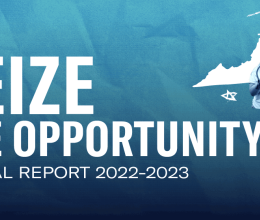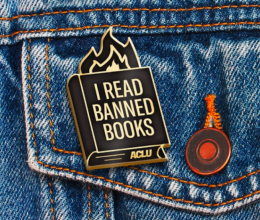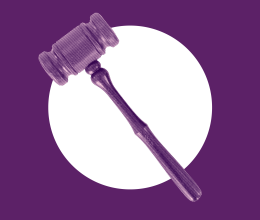
 The ACLU of Virginia has sent the following letter to Chesterfield County Public Schools regarding removal of books on the Chesterfield County Public Schools’ optional summer reading lists and from its libraries and about the process being used by the School Board to effect changes in current school policy. -- August 24, 2016
The ACLU of Virginia has sent the following letter to Chesterfield County Public Schools regarding removal of books on the Chesterfield County Public Schools’ optional summer reading lists and from its libraries and about the process being used by the School Board to effect changes in current school policy. -- August 24, 2016
Superintendent Dr. James F. Lane Chesterfield County Public Schools 9990 Krause Road Chesterfield, VA 23832
Dear Dr. Lane:
The ACLU of Virginia has serious concerns about the possible removal of books on the Chesterfield County Public Schools’ optional summer reading lists and from its libraries and about the process being used by the School Board to effect changes in current school policy. As a member of the National Coalition Against Censorship, the ACLU is aware that the Coalition and some partner organizations1 (“NCAC partners”) expressed their concerns to you about this issue in a letter dated August 1,2016. We write to endorse the views expressed in the NCAC letter and to underscore our concerns.
It is important to emphasize at the outset that the summer reading list is merely a suggested reading list and that no student is ever compelled to read any book on the list or to check any particular book out of a school library. Parents concerned about what their children read and who do not want their children to read the challenged books have complete and unfettered freedom to limit what their children read. All they need to do is prohibit their children from checking out or reading any books to which they, as parents, may object. At the same time, focusing on their freedom to exercise their parental authority while leaving other parents and children free to read or check out books of which they approve protects everyone’s rights while diminishing the rights of no one.
On March 8,2016, in a similar situation, the ACLU of Virginia urged Governor McAuliffe to veto House Bill 516 that would have required public schools to notify parents about instructional materials that include “sexually explicit content.” In our letter to the Governor, we explained that “[plassing judgments, applying labels and redflagging educational materials that might prompt uncomfortable but insightful discussions is a small-minded activity that does not belong in public schools...” and should not be the business of government. This is also true of the censorship process on which the school division has now embarked.
In their August Letter. NCAC partners listed four key substantive educational reasons in favor of keeping the challenged critically acclaimed books on the summer reading list: 1) they explore themes of importance to teens; 2) keeping the books on the list in spite of the controversy would celebrate diversity of opinion; 3) removing the books would be detrimental to the Chesterfield County educational program; and 4) removal of the books would raise First Amendment concerns. We agree with each of these points and believe that good educational practice argues strongly against censorship of any of the challenged books.
As we explained in our letter to the governor regarding HB 516, book banning by government raises serious “First Amendment concerns about content-based discrimination and censorship of controversial literature or texts (LGBT literature, literature depicting the treatment, exploitation and sexual assault on slaves, the original edition of the Diary of Anne Frank that includes details about her menstrual cycles, etc.).” Bending to the will of any number of vocal parents could lead to a narrower and narrower list of books for students to read on a more and more homogeneous set of topics. This could lead to a watered down book list which would be, as the NCAC partners suggest, “devoid of thought-provoking or stimulating novels.” It would also deprive other students of the freedom to choose a broader reading list than a particular set of parents would choose for their children.
Like the NCAC and its partners that signed the recent letter to the school board, we also oppose the use of ratings and warning labels for books. The letter cites the National Council of Teachers of English and the American Library Association — both of which have rejected the use of labeling and rating systems as forms of censorship. We completely agree. Vague terms to label potentially controversial books provide no guidance on the topic and only encourage some parents to forbid their children from reading the books without knowing much more about them other than an arbitrary label attached to it.
Finally, we join in expressing concern about the School Division’s failure to follow its own rules regarding proposed removal of books from school libraries. Under School Board Policy 303 l-R, the process for reviewing library materials is one that is school based with the Division involved only on appeal from a Local School Review Committee. This is the right way for parents concerned about library holdings to raise these issues, and the Division should advise them to follow the existing established procedures rather than encourage an end around process through use of the public comment period at a School Board meeting. We urge the panel to keep the books in the libraries and on the suggested reading list and reject labeling and rating books in the Chesterfield School District.
Keep censorship out of Virginia’s public schools.
Sincerely, Leslie Mehta Legal Director



